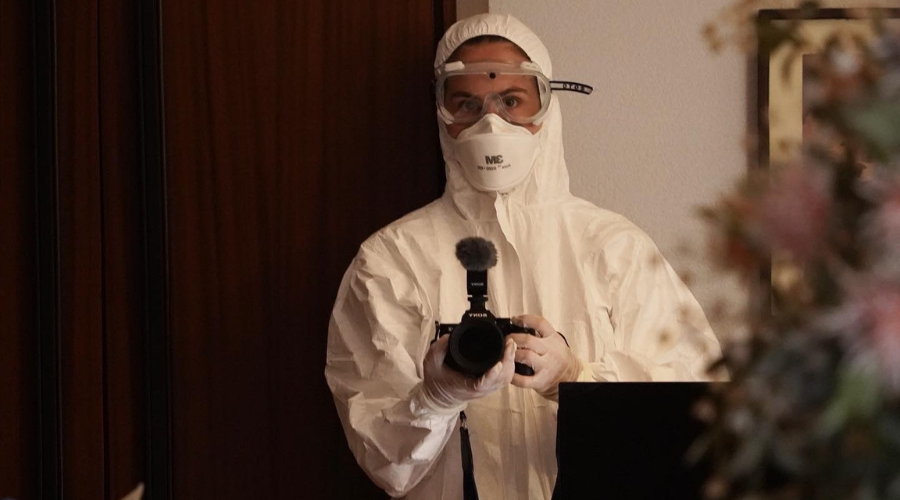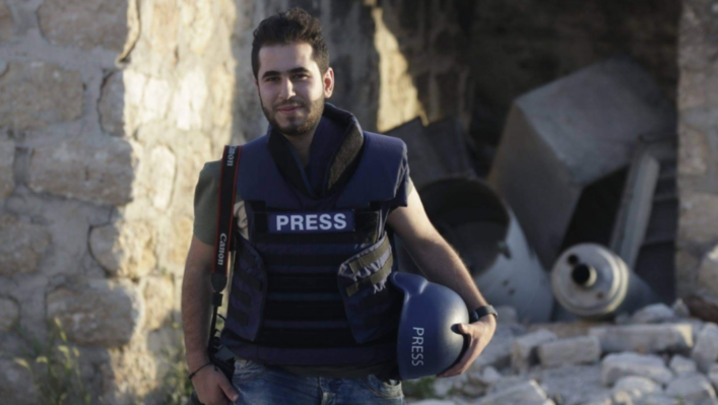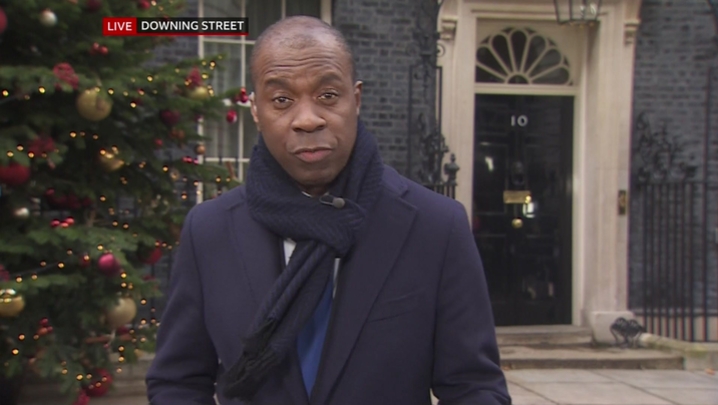With the pandemic came closed borders and restricted access, making the newsrooms more reliant than ever on the work of agency journalists like Renata Brito.
As a multiformat journalist for the Associated Press, Brito filmed in both Spain and Brazil in COVID-19 hospital wards, emergency airlifts and makeshift morgues, ensuring that the agency and other news sources could illustrate the impact of the pandemic to viewers around the world and counteract the misinformation running rampant.
Brito also played a leading role in the AP’s coverage of migration to Europe, spending a month aboard the Ocean Viking rescue ship in the Mediterranean Sea to meet the men and women who had suffered at the hands of Libyan detention centres. The stories she heard confirmed the exploitation of migrants by the militias and coast guards funded by the EU.
We caught up with Brito ahead of the awards to discuss her vital coverage and the challenges of reporting in the pandemic.
What inspired you to become a journalist?
My father was a journalist. He was a correspondent in London for Brazilian television, although he didn’t want me to be a journalist. In his words, he wanted me to do something better or that would get better pay! But growing up I was always fascinated with current events and would read the newspaper or watch the news very closely with him and my mother. I didn't want to do exactly what he did, which was live television covering sports events. I wanted to work more in the field, interview people, move around more and witness history unfolding.
How have you found adapting to the pandemic?
It was a real shock in the beginning because we didn't know how to illustrate this invisible virus. You could see the restrictions like the lockdowns and eventually the streets were empty, but we were not actually seeing the virus. Now it's a bit easier because we're already a year into it and hospitals and governments are more understanding of our needs, but in the beginning it was a real challenge to get to see what was actually happening behind closed doors, inside the hospitals, morgues and cemeteries.
You mentioned the access was hard to come by, how did you manage to gain access to restricted areas like the ICU in Badalona?
I must say it wasn't just my efforts, it was the whole AP team in Spain. I was calling, emailing, writing to several hospitals all the time, repeatedly getting “nos.” Eventually, we got a contact through a freelancer, who was a friend of the press officer at the hospital, and the ‘AP’ name helps as well, but it really came down to going there in person. We had managed to get access for photos only but it was really important for us to get video, so I went there with the photographer and just pleaded my case. We were eventually let in and I didn't have interviews authorized but I spoke to nurses and doctors while the press officer wasn't watching to find out what was really happening, which was chaos.
I think the lesson here is: even if you get “nos” in writing, go there and see if you can meet someone in person to plead your case. Obviously, in a pandemic it is hard, but that's the only way it really works.
Why did you think it was so important to show what was going on inside the ICU?
Well, how do you explain to people they need to be locked in their houses if they don't understand why? You have to show them what's happening in the hospitals. I know there are people that are always going to deny that the pandemic exists and the gravity of the situation, but how else can you convince them they need to take care of themselves and respect the restrictions and the protection measures when they don't understand what’s at risk?
Was that also why you went to cover the virus in Brazil?
Yes, I was speaking to my family back in Brazil and in the beginning, people were scared and they stayed at home but there was never a very strict lockdown like they had here in Spain. So eventually they started relaxing and each regional government in Brazil did its own thing. There were mayors who wanted to lock down but the federal government didn't want to. When we first arrived in Manaus we knew the virus had spread, but when you hear people saying the virus doesn't exist or that it's being exaggerated or that are in complete denial that the virus has caused the death of their loved ones, you see the extent to which misinformation and denialism can really impact human lives and cause deaths, and the consequences of when leadership helps spread that misinformation. That's why it's so important to actually go there yourself on the ground to see what's really happening.
Why did you go onboard the Ocean Viking?
We all knew that the treatment of migrants and refugees in Libya was horrific, and that the Libyan Coast Guard was complicit with the mafias intercepting people to take them back to detention centres that are basically prisons. My colleagues Lori and Maggie were trying to follow the EU funding to see where it was ending up and in what hands. They had access to all these documents and financial information but we were missing the human aspect and first-hand accounts of witnesses that had been in the detention centres funded by EU money, either directly or indirectly, and were basically being recycled and extorted. So I went on the Ocean Viking to confirm the theories and what the documents said from human victims.
When we do a story we always ask ourselves: who are the people most affected by it? We want to have their voice in the story, so it was very important that we had these human beings speaking to us because ultimately they're the ones that were most affected. It wasn't Europe, it wasn't the EU, it was their lives.
What stories are important to you?
I’ve always been interested in human rights violations and covering issues that don't get as much attention as they should, so I want to keep covering them. The migration stories always fascinate me, the things that are happening in Libya and elsewhere [are] so close to us in Europe but yet so far at the same time, and we’re only scratching the surface of it. A lot of the time the coverage is very superficial and we don’t really go into what's actually happening to these people and why. Why are people moving exactly? How does it affect us or how does it affect them? And how is the EU changing its policy? It’s not even a migrant ‘crisis’. Migration is just a fact that happens all the time. We’ve never had so many displaced people in the world but it's not in Europe, the biggest migration flows are in Africa. They are the countries most affected, not Europe, but European policies affect them directly, as do American policies and the outsourcing of border control to other countries like Libya, Morocco, Turkey, and a lot of West African countries now. We’re just worried about arrivals, where they’re arriving and whether they’ve gone up or down, but that’s not the story, it’s deeper than that.
Renata Brito was nominated for Young Talent of the Year at the RTS Television Journalism Awards 2021. Brito was nominated alongside Fadi Al Halabi and Rianna Croxford.









